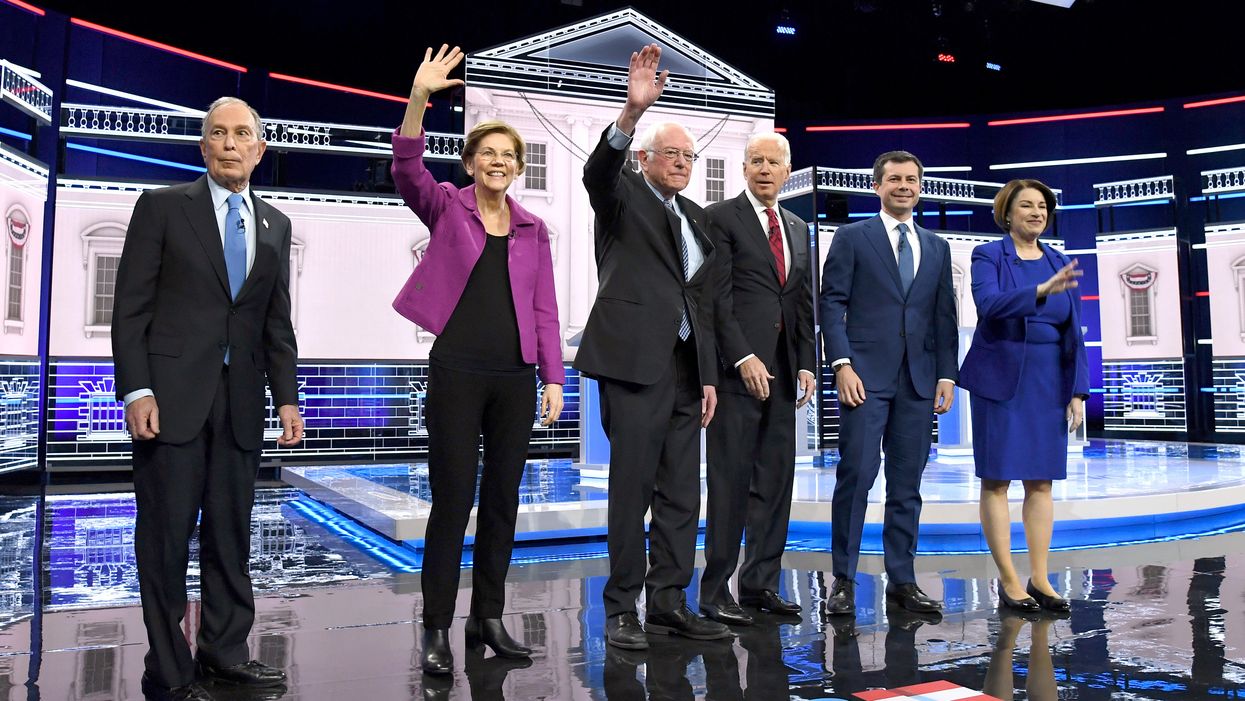Day is a communications associate and Lamorena is a government affairs associate at R Street Institute, a nonpartisan and pro-free-market public policy research organization.
In the lead-up to Super Tuesday, presidential candidates are hustling across the country shaking hands, slapping backs and trying their hardest to stay in the race. For these campaigns, next week's primaries and caucuses will be a turning point. Over the years, many candidates –– Pat Robertson, Bob Kerrey, Dick Gephardt, and Ben Carson, to name a few –– have dropped out if they were unable to muster a strong enough showing on Super Tuesday.
While Super Tuesday is the end for many presidential hopefuls, the day is much more important for another reason. With 14 states holding primaries and 34 percent of Democratic delegates up for grabs, this year's best performer is the odds-on bet to become the party's nominee. However, these states do not represent the majority of the electorate and tend to be highly partisan.
Put another way, Super Tuesday actually disenfranchises voters in many politically powerful states. To fix this, the two major parties would be wise to reorder the primary and caucus processes in order to be more representative and to give the candidates a better shot at winning votes.
The Democratic National Committee and the Republican National Committee set their own primary and caucus schedules. Super Tuesday, in its current form, came to be in the 1980s when Democrats wanted to nominate a more moderate candidate. The Democratic Party in Southern states moved their primaries to March in an effort to ensure their voice was heard earlier on in the process. Over time, a very inflated Super Tuesday has emerged. In 2008, for both parties, nearly half the states had their contests on one day.
However, this scheduling leaves a number of important swing states out of the mix. According to the Cook Political Report's 2020 Electoral College Ratings, Arizona, Florida, North Carolina, Pennsylvania and Wisconsin are "tossup" states. Of these five, only one holds its primary on Super Tuesday. The other four hold their primaries and caucuses at least two weeks later, with Pennsylvania not until April 28. In the intervening time, many candidates will likely drop out.
It makes little sense that candidates ignore these important tossup states until the spring. Just as troubling is why the first four caucus and primary states wield such power when they account for an insignificant portion of the vote and are not a representative sample of the American electorate. According to The Washington Post, "these states are small, contributing just 155 pledged delegates out of the Democratic total of 3,979, but they have an outsized role in the narratives that can determine the eventual nominee." Also minorities have little representation in the first two contests. States do not get much more heavily white than Iowa and New Hampshire."
Oklahoma and Vermont –– two of the 14 states in play on Super Tuesday –– are similar in demographic makeup. Oklahoma's population is more than 74 percent white and holds seven electoral votes. The state has been solidly red in presidential elections since 1952. Vermont's population is more than 94 percent white and holds only three electoral votes. The state has been solidly blue in presidential elections since 1992. Regardless of who wins each party's nomination, these states will go red and blue respectively this year. There is little value in having the base of each party decide who the nominee should be, seeing as their states are not in play in the general election.
The current primary and caucus schedule only exists because the states that hold the first contests are not willing to give up that power. However, the two parties should not be bullied into maintaining the status quo by solidly red and blue states. They should reevaluate their current primary and caucus schedule and let the voters in tossup states have a real voice in the process. It will better serve the party and the voter.



















